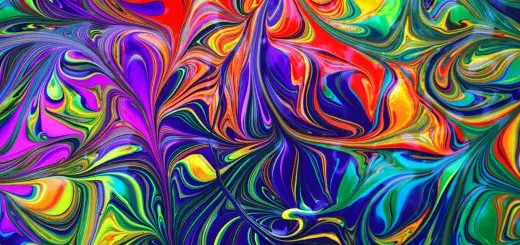Taoist Principle of Wu Wei: Action through Inaction

Looking for more amazing products? Check out our online store and explore our collection here! Happy shopping!
Before diving in, please note: This post is for informational purposes only. If you’d like to know more about how we approach topics, feel free to check out our friendly Disclaimer Page.
Hey there, amazing readers! 
We’re committed to delivering quality posts, and your support (even just sticking around despite the ads) means everything to us. So, bear with us, and thanks for helping us keep the good vibes rolling. Now, on to the fun stuff!
TRANSLATE BUTTON AT THE END OF THE ARTICLE
A Quick Overview
The Taoist principle of Wu Wei, often translated as "action through inaction," is a central concept in Taoist philosophy that emphasizes the idea of effortless action and natural behavior.
Wu Wei encourages individuals to align themselves with the natural flow of the universe, acting in harmony with the Tao, or the way of nature.
By practicing Wu Wei, individuals can achieve a state of balance, harmony, and effectiveness by letting go of excessive striving and controlling tendencies.
This principle emphasizes the power of non-action, spontaneity, and allowing things to unfold naturally.
Understanding the Taoist Principle of Wu Wei
Wu Wei can be understood as a paradoxical concept that involves both action and non-action.
It is not about doing nothing, but rather about acting in a way that is aligned with the natural order of things.
In Taoist philosophy, Wu Wei is seen as the most effective way to achieve success and fulfillment in life.
By following the path of least resistance and allowing things to happen naturally, individuals can avoid unnecessary struggle and conflict.
The Meaning and Origin of Wu Wei
The term Wu Wei is composed of two Chinese characters: "wu" meaning "without" or "non," and "wei" meaning "action" or "striving." Together, Wu Wei can be translated as "non-doing" or "non-striving." This concept has its roots in ancient Chinese philosophy, particularly in Taoism, where it is seen as a guiding principle for living a balanced and harmonious life.
Wu Wei emphasizes the idea of going with the flow and allowing things to unfold naturally, rather than trying to force outcomes through excessive effort.
How Wu Wei Emphasizes the Power of Non-Action
Wu Wei highlights the power of non-action by suggesting that sometimes the best course of action is to do nothing at all.
This principle encourages individuals to trust in the natural order of things and to let go of the need to control every aspect of their lives.
By practicing Wu Wei, individuals can cultivate a sense of inner peace, confidence, and trust in the unfolding of events.
This does not mean being passive or lazy, but rather acting in a way that is spontaneous, effortless, and in alignment with the Tao.
The Balance Between Effort and Effortlessness
In the Taoist principle of Wu Wei, there is a delicate balance between effort and effortlessness.
While it is important to take action when necessary, it is equally important to know when to step back and allow things to happen on their own.
By finding this balance, individuals can avoid unnecessary struggle and resistance, and instead flow with the natural rhythm of life.
This principle teaches us that sometimes the most effective action is non-action, allowing the universe to work its magic in its own time.
Applying Wu Wei in Daily Life and Decision-Making
Practicing Wu Wei in daily life can involve letting go of the need to control every outcome and instead trusting in the natural flow of events.
In decision-making, this principle encourages individuals to listen to their intuition, follow their instincts, and act in a way that feels natural and effortless.
By surrendering the need to overanalyze and overthink, individuals can make decisions that are in alignment with their true selves and the greater flow of life.
Cultivating Spontaneity and Naturalness
One of the key aspects of Wu Wei is cultivating spontaneity and naturalness in one’s actions.
By letting go of rigid plans and expectations, individuals can tap into their inner wisdom and intuition, making choices that feel authentic and aligned with their true purpose.
This spontaneity allows for a greater sense of freedom and creativity in one’s actions, leading to more fulfilling and meaningful experiences.
The Role of Wu Wei in Taoist Philosophy
In Taoist philosophy, Wu Wei is considered a fundamental principle that underpins the entire philosophy.
It teaches individuals to live in harmony with the natural world, embracing the ebb and flow of life without resistance.
By practicing Wu Wei, individuals can cultivate a sense of inner peace, contentment, and wisdom, leading to a more fulfilling and balanced existence.
This principle is at the core of Taoist teachings and is seen as a guiding force for living a harmonious and meaningful life.
Wu Wei as a Way to Achieve Harmony and Balance
By practicing Wu Wei, individuals can achieve a sense of harmony and balance in all aspects of their lives.
This principle teaches us to let go of the need to control every outcome and instead trust in the natural order of things.
By aligning ourselves with the Tao and following the path of least resistance, we can navigate life with greater ease and grace.
Wu Wei allows us to release the burden of excessive effort and striving, leading to a more peaceful and balanced existence.
Overcoming Obstacles with the Principle of Inaction
When faced with challenges and obstacles, the principle of Wu Wei teaches us to approach situations with a sense of calm and detachment.
By letting go of the need to fight against the current, individuals can find creative solutions and opportunities that may not have been apparent before.
This principle reminds us that sometimes the best way to overcome obstacles is to step back, observe, and allow things to unfold naturally.
By surrendering the need to control every outcome, we can navigate challenges with greater ease and effectiveness.
The Importance of Letting Things Flow Naturally
Wu Wei emphasizes the importance of letting things flow naturally, without trying to force outcomes or manipulate circumstances.
By allowing events to unfold in their own time and in their own way, individuals can tap into the natural flow of life and experience a greater sense of ease and fulfillment.
This principle reminds us that the universe has its own rhythm and intelligence, and by aligning ourselves with this flow, we can achieve a state of harmony and balance that is deeply fulfilling.
Achieving Success Through Non-Striving
Contrary to conventional wisdom, the principle of Wu Wei teaches us that success can be achieved through non-striving.
By letting go of the need to constantly push and force outcomes, individuals can tap into a deeper source of power and effectiveness.
This principle encourages us to trust in the natural order of things and to act in alignment with our true purpose and values.
By cultivating a sense of inner peace and surrender, we can achieve success that is not only fulfilling but also sustainable and long-lasting.
Embracing the Concept of Effortless Action in Taoism
In Taoism, the concept of effortless action is synonymous with Wu Wei, emphasizing the idea of acting in a way that is natural, spontaneous, and in harmony with the Tao.
By embracing this concept, individuals can let go of the need to control every outcome and instead trust in the flow of life.
Effortless action is about surrendering the ego and allowing the universe to work its magic through us.
By aligning ourselves with the natural order of things, we can achieve a state of balance, harmony, and effectiveness that is deeply fulfilling.
Conclusion
The Taoist principle of Wu Wei, or "action through inaction," offers a profound and transformative way of approaching life and decision-making.
By emphasizing the power of non-action, spontaneity, and naturalness, Wu Wei teaches us to let go of excessive striving and control, and instead trust in the natural flow of the universe.
By finding the balance between effort and effortlessness, individuals can achieve a sense of harmony, balance, and success in all aspects of their lives.
Through the practice of Wu Wei, we can cultivate a deeper connection to the Tao and experience a more fulfilling and meaningful existence.

The Enlightenment Journey is a remarkable collection of writings authored by a distinguished group of experts in the fields of spirituality, new age, and esoteric knowledge.
This anthology features a diverse assembly of well-experienced authors who bring their profound insights and credible perspectives to the forefront.
Each contributor possesses a wealth of knowledge and wisdom, making them authorities in their respective domains.
Together, they offer readers a transformative journey into the realms of spiritual growth, self-discovery, and esoteric enlightenment.
The Enlightenment Journey is a testament to the collective expertise of these luminaries, providing readers with a rich tapestry of ideas and information to illuminate their spiritual path.
Our Diverse Expertise
While our primary focus is on spirituality and esotericism, we are equally passionate about exploring a wide range of other topics and niches 

To ensure we provide the most accurate and valuable insights, we collaborate with trusted experts in their respective domains 
Our blog originally focused on spirituality and metaphysics, but we’ve since expanded to cover a wide range of niches. Don’t worry—we continue to publish a lot of articles on spirituality! Frequently visit our blog to explore our diverse content and stay tuned for more insightful reads.
Hey there, amazing reader! 
Check out our store here and take a peek at some of our featured products below! Thanks for being awesome!











